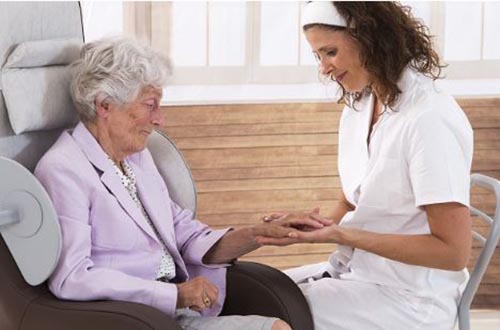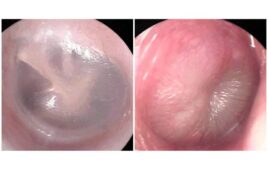Groundhog’s Day tells us whether we will get an early spring or six more weeks of winter, regardless, pollen is on the way. Patients with severe asthma may worry about how this change in weather will affect their health, but continual remote monitoring allows for patients to catch asthma attacks and exacerbations before needing hospitalization.
Dr. Michael Blaiss, an advisor to PMD Healthcare and a board member to the World Allergy Association and the American Board of Allergy and Clinical Immunology, expands on how recent technology in at-home monitoring can save patients time, money and stress.
Spirometry is the main test when looking at pulmonary function in asthmatic patients and coughing or wheezing are the telltale symptoms of a worsening condition.
Before spirometers, a peak flow meter was used for at-home monitoring. This device was hard to use, making some data inaccurate and frustrating patients. The difficulty with in-home monitoring has been fixed with the invention of the personal home spirometer. “Hopefully the amount of home monitoring will increase as the spirometer increases ease,” says Blaiss.

(Credit: Getty Images)
PMD Healthcare’s newest product, the Spiro PD 2.0, offers patients a spirometer that is connected to a HIPPA complaint online portal, which synchs in real time allowing doctors and caregivers to see patient’s lung function data and symptoms continuously and remotely.
This is extremely important with pulmonary patients. The sooner the care team is able to catch the problem, the less of a chance for hospitalization or a drastic change in medication. This can help improve the control of the illness for the patient and decrease direct and indirect costs for the patient, provider and the payer.
“It has been proven that the more contact, of any kind, doctors have with patients can improve the outcome in the patient’s health,” says Dr. Blaiss. “Technology allows for more digital contact to be made between the healthcare provider and the patient, which is so important now that face to face time between doctors and patients are shrinking.
The technology offered by the Spiro PD 2.0 gives children, teen and young adult patients more freedom and better monitoring of adherence to their medication and care plan. This remote monitoring allows for parents and caregivers to monitor their children while away at summer camp, or when their teenagers go off to college. It gives the patients the ability to stay in contact with their care team, while going about the routine of daily life.




